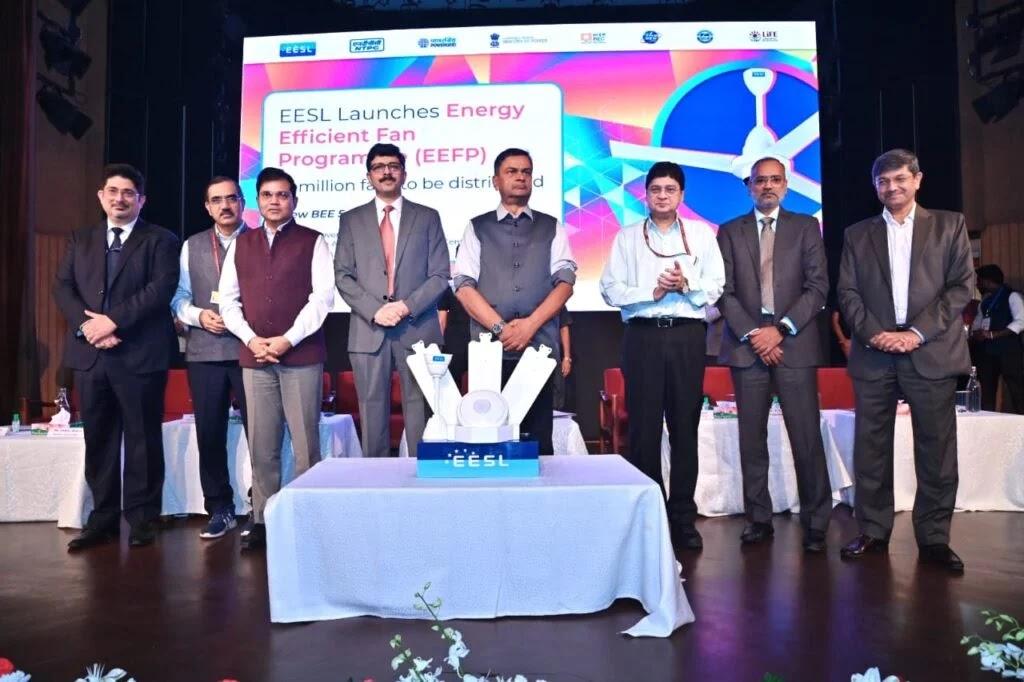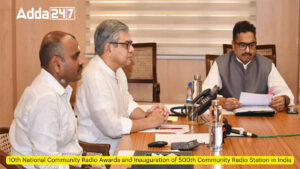Energy Efficiency Services Limited (EESL), a joint venture of Public Sector Undertakings under the Ministry of Power, unveiled two groundbreaking initiatives, the National Efficient Cooking Programme (NECP) and the Energy Efficient Fans Programme (EEFP) on November 2, 2023, in New Delhi.
Initiatives Spearheaded by Union Minister Shri R. K. Singh
- These initiatives were launched by the Union Minister for Power and New & Renewable Energy, Shri R. K. Singh. These programs aim to revolutionize cooking practices in India and underscore the importance of energy-efficient fans.
- EESL’s commitment to these initiatives includes the distribution of 1 crore efficient BLDC fans and 20 lakh energy-efficient induction cook stoves across the nation.
NECP Revolutionizing Indian Cooking with Cost-Effective and Energy-Saving Induction Stoves
- The NECP is set to transform cooking practices in India by introducing induction-based cook stoves that offer a cost advantage of 25-30% over traditional cooking methods.
- This initiative promises both energy savings and cost-effective cooking solutions, making it an appealing option for Indian households.
EESL’s Massive Induction Cook Stove Deployment in Collaboration with MECS
- By deploying 20 lakh induction cook stoves across the country, EESL aims to reduce the environmental impact of cooking methods, ensuring cleaner air and improved health for citizens.
- To facilitate this large-scale deployment, EESL has partnered with Modern Energy Cooking Services (MECS), which is expected to accelerate the acceptance and widespread adoption of modern electric cooking devices in Indian kitchens.
Energy Efficient Fans Programme (EEFP)
- The EEFP focuses on deploying energy-efficient BLDC fans with the goal of distributing 1 crore ceiling fans across the country. These initiatives not only reduce energy consumption and environmental impact but also enhance consumer comfort while lowering electricity bills.
- The program was initiated during the G20 Energy Transitions Working Group in Goa in July 2023. As a continuation of this effort, EESL is inviting the first bid of 20 lakh fans under the EEFP.
Contributing to Clean Cooking and Carbon Mitigation
- The NECP is a subset of the Clean Cooking Scheme and aligns with the Go-electric initiative by the Ministry of Power. EESL is actively promoting clean and safe electric cooking to support India’s Go-electric campaign and contribute to carbon mitigation goals.
- The adoption of induction cooktops is growing rapidly due to their efficiency, technology, and aesthetic appeal. Increased demand is driven by factors like modular kitchens, rising LPG costs, and the versatility of cooking with induction.
Energy Efficient Fans for a Greener Future
- EESL has a track record of promoting energy-efficient appliances, including LED bulbs, tube lights, and high-performance fans. Beginning on January 1, 2023, the Bureau of Energy Efficiency (BEE) mandated that ceiling fans must bear star labels.
- Given that ceiling fans account for about 40% of total residential electricity consumption in India, replacing current fans with more efficient models could result in significant energy savings. EESL aims to capitalize on this potential by deploying 1 crore 5-star energy-efficient ceiling fans across India.
Phasing Out Inefficient Fans
- Minister Shri R. K. Singh made it clear that inefficient fans would be rapidly phased out, emphasizing that the fans provided by EESL are Five-Star-rated. This move aligns with India’s commitment to reducing its dependence on imported energy sources, and it reflects the ongoing shift towards cleaner and more efficient energy solutions.



 Ashwini Vaishnaw Inaugurates India’s 5...
Ashwini Vaishnaw Inaugurates India’s 5...
 Vriksharopan Abhiyan 2024 Launch in Dhan...
Vriksharopan Abhiyan 2024 Launch in Dhan...
 India's Installed Nuclear Power Capacity...
India's Installed Nuclear Power Capacity...
